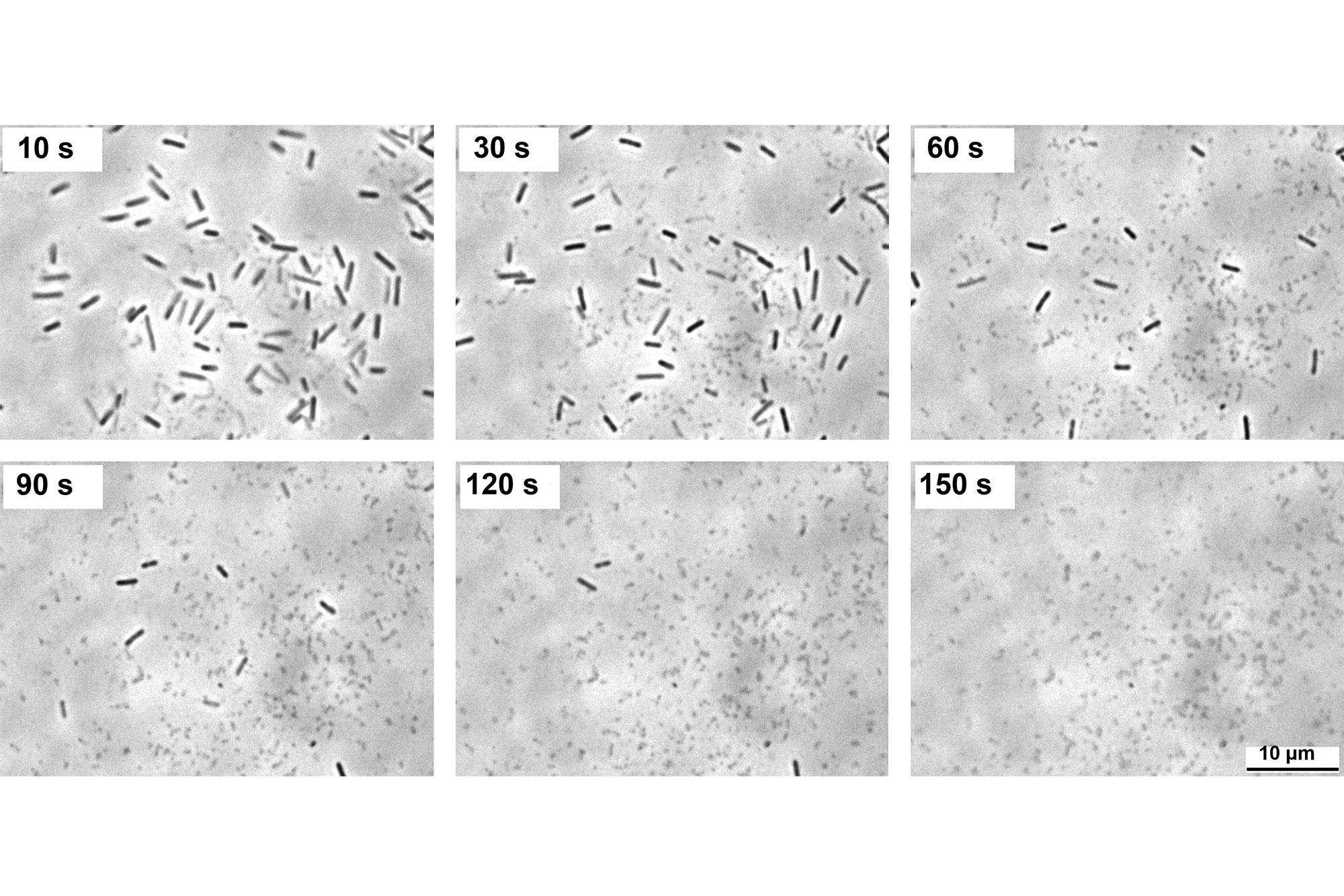Enemies of bacteria used for medicines

Bacterial viruses destroy bacteria with the help of specific enzymes. Researchers have now succeeded in delivering them in a targeted way to sources of infection deep in the body, and using them there against bacterial pathogens.
Portrait / project description (completed research project)
Bacteriophages are viruses that kill bacteria but are harmless to humans. They use the bacteria as hosts for the purpose of multiplication. To leave a bacterium, they break down its cell wall using enzymes known as endolysins, causing the bacteria to die. Researchers at ETH Zurich led by Martin Loessner investigated whether and how endolysins can be used to combat local bacterial infections in the human body.
Focus on hard-to-reach infections
While to date, endolysins have already proven successful for external applications, for example on the skin and mucosa, they do not penetrate well into deeper tissue layers. Martin Loessner and his team have now looked at ways to also deliver them to local sources of infection within the human body. Their focus here was on bone inflammations, which are often difficult to treat with the antibiotics available. To fully exploit the therapeutic potential of endolysins, Loessner and his team first analysed a large collection of various endolysins to determine their various properties. Using a screening process specially designed for this purpose, they selected several candidates that function particularly well in the conditions found in the human body and kill specific bacterial pathogens.
Effective in the right place thanks to biological postcodes
To transport these endolysins to precisely the right location within the body, the researchers combined the enzymes with peptide molecules, which can bind to very specific sites such as bone tissue. These molecules reach the desired location virtually automatically when they are circulating in the bloodstream. In this way, they guide the attached active substances – the endolysins – directly to the right place. The researchers therefore also refer to “biological postcodes”. In trials in mice, it was possible to transport endolysins directly to the inflamed bones and kill the bacterial pathogens located in the bone tissue.
The work by Martin Loessner and his team is an important step towards effective use of endolysins as therapeutic alternatives for treating bacterial infections. They could prove very effective, particularly against bacteria hiding in hard-to-reach areas in the body. In addition, it is extremely difficult for bacteria to develop resistance to endolysins because they perforate the bacterial cell walls in vital places that are difficult to change. Given the increasing issue of resistance, the approach using the weapons of bacteriophages as medicines harbours significant potential.
November 2022
Original title
Novel targeted bacteriophage endolysin-based approach for treatment of drug-resistant Staphylococcus aureus infections
